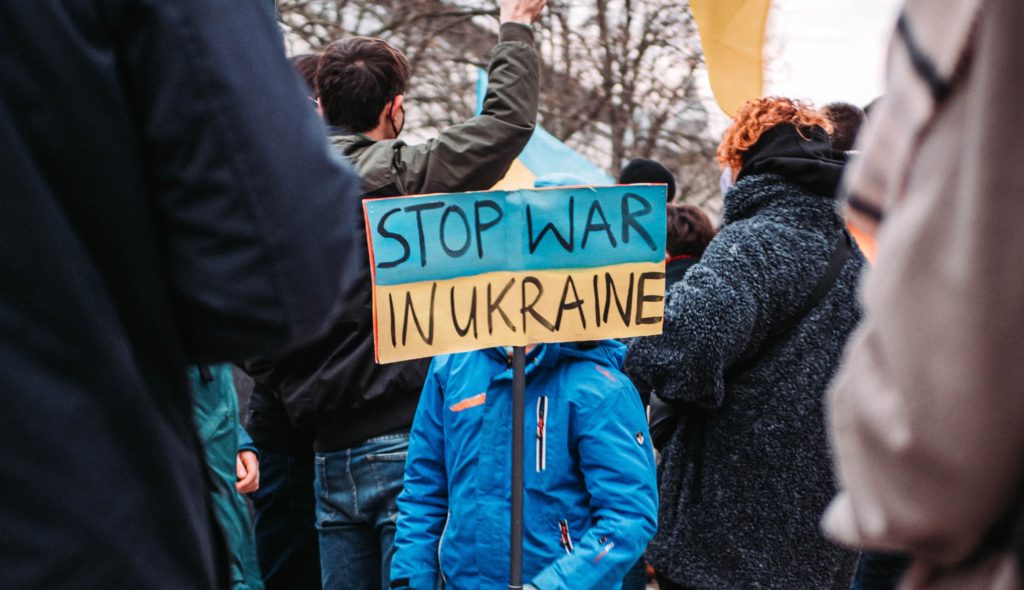
By Dr Marisol Reyes and Gabriella D’Avino
Institute for Research into Superdiveristy, University of Birmingham
Several months have passed since the Russian invasion of Ukraine and more than 7,5 million Ukrainians have been displaced across Europe. In March 2022, the UK government introduced a scheme intended to meet the needs of forced migrants escaping the conflict in the form of the ‘Homes for Ukraine Scheme’ (H4U). The scheme is administered by the Department for Levelling Up, Housing and Communities. By the 27th of September, the UK government had issued 52,800 visas for the Ukraine Family Scheme, and a further 135,900 to the Ukraine Sponsorship Scheme.
The approach adopted in H4U was unprecedented in the UK. H4U allows hosts to offer accommodation to Ukrainian guests in their own homes through a sponsorship programme. Hosts receive £350 a month to cover their basic costs and have to pledge to provide housing for at least six months. The matching process between sponsors and guests initially relied heavily on social media sites but over time charities and community groups have become more involved.
According to a survey from the Office for National Statistics, undertaken in July 2022 with 17,702 adults (aged 18 years or over) living in the UK, 94% of sponsors were motivated to apply for the scheme because they wanted to help people fleeing a war zone. Around half of the sponsors (51%) were decided to apply because they had space in their house.
There is much more to welcoming guests than the provision of accommodation. Ukrainians need a safe space to call home, and people to help them integrate within the local community. Besides providing a home, hosts offer support in different areas such as language development, helping to register schools, GPs and local services, opening a bank account, explaining local traditions and culture, and explaining how to use public transport.
The expertise and experience of organisations who work on refugee resettlement, such as RESET and Sponsor Refugees, has been very valuable in providing training, advice and support to potential and existing hosts in their relationships with guests. Other charitable organisations, community groups and private businesses have also engaged with the scheme offering a wide rangle of resources for hosts and guests which they make available online and via social media sometimes translated into Ukrainian and Russian. They have offered support, such as free and accessible leisure activities and practical skills such as free driving lessons for Ukrainians.
Key stakeholders working on the implementation of the scheme include Local Authorities across the UK. Authorities receive financial support for each guest residing in their area and have used this resource to offer a wider range of services including case workers, language lessons, social programmes and websites with guidance and advice for informing newcomers about their rights and entitlements.
Following the emergence and expansion of H4U, a team of researchers from the Institute for Research into Superdiversity (IRiS) at the University of Birmingham, in consultation with Ukrainian guests and with input from officers from the Department for Levelling Up, Housing and Communities produced a H4U toolkit. The toolkit pulls together in one single platform all the key information, official documents, website links and resources that have been produced for H4U by different stakeholders. In essence it provides a “one-stop-shop” for hosts, guests and other interested parties.
This toolkit offers a checklist of the factors that hosts and guests might wish to consider when matching, as well as during each of the key resettlement phases (pre-arrival, the first weeks after the arrival, and the medium and longer term integration processes). It also includes guidance on how to have difficult conversations for hosts and guests, and a list of local authorities’ resources and Facebook groups set up in the four nations.
A few considerations emerged while researching, collecting and organising relevant information. H4U demands intense interactions between forced migrants and members of the civil society, many of them who may be providing practical and emotional support of this kind for the first time. The experience of sponsoring can further expand knowledge of what being a displaced person means and the challenges newcomers face, generating more positive attitudes towards refugees and asylum seekers generally. Hosts tend to share their sponsorship experience with their wider networks and introduce their guests to the people they know, producing a ripple effect that can reduce stereotypes and increase social cohesion.
Nevertheless, the sponsorship of Ukrainians also poses practical challenges. One of the most relevant aspects of concern that emerged after six months of operation is the risk of homelessness among Ukrainians if guests are unwilling or unable to host them after the initial six months. Data published by the Home Office show that from 24th of February to 26th of August this year, 530 Ukrainians who arrived through the H4U scheme were homeless. On the other hand, eleven civil society organisations working with Ukrainians in London undertook two homelessness risk pulse surveys with 370 Ukrainians in February and May 2022. They found that overcrowding, relationship breakdown, and short-term or insecure tenancy could result in homelessness.
Although sponsored Ukrainians are entitled to work and claim benefits, six months is not enough time to settle in a new country and build an independent life. Renting without UK credit history and the shortage of landlords willing to accept tenants in receipt of Universal Credit make it difficult for Ukrainians to secure accommodation. With the rising cost of living, many sponsors are concerned about how they will be able to afford to continue with current hosting arrangements. It is important that all the stakeholders involved in H4U, from the government to civil society organisations and hosts come together to identify a way forward for H4U hosts and guests and to identify the learning from this novel scheme.
The views and opinions expressed in this article are those of the author and do not necessarily reflect the official policy or position of the University of Birmingham.
